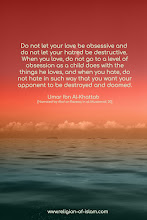|
Clock
Sunday, December 28, 2008
Israel pounds Gaza for second day
Posted by Shukran UmmIsmail Webb, May Allaah azz wal Jaal Reward you. Ameen at 2:53 AM
Labels: World Events
Subscribe to:
Post Comments (Atom)
Comment Section
Greenville Masjid Information Center
Greenville Masjid
As salaamou alikum wa Rahmatuallah wa Baraktu The GreenvilleMasjid it's Located @ 96 Meridian Ave.
Taylors, SC 29687 .Phone: 864-292-2219
**Please Note On Friday"s Jumma is held at the Upstate Islamic Center(UIC) 1601 Clement Drive,Greer,SC Please check Website for Additional information.
Insha allah Make Du'aa and Keep in Mind the Construction of the New Masjid and Islamic School As- Sabeel Academy << click here.
Also Keep in mind the After school Program"As-Sabeel "Enrichment Hour". refer to below email for Details insha allah. If any Question about Volunteering Refer below as well.
Volunteers Needed !!
Other Local Masjid In the Upstate!!
Clemson Sc
Greenville Masjid News Letter
Upstate Islamic Center
Halal Market: HolyLand International Grocery
200 North PleasantBurg Drive(Unit C)
Greenville SC, 29607
864-248-4841
Pita Grille
3217 WadeHampton Boulevard
Taylors, SC , 29687 (864) 292-8200
Pita Grille <<
As salaamou alikum wa Rahmatuallah wa Baraktu The GreenvilleMasjid it's Located @ 96 Meridian Ave.
Taylors, SC 29687 .Phone: 864-292-2219
**Please Note On Friday"s Jumma is held at the Upstate Islamic Center(UIC) 1601 Clement Drive,Greer,SC Please check Website for Additional information.
Insha allah Make Du'aa and Keep in Mind the Construction of the New Masjid and Islamic School As- Sabeel Academy << click here.
Also Keep in mind the After school Program"As-Sabeel "Enrichment Hour". refer to below email for Details insha allah. If any Question about Volunteering Refer below as well.
Volunteers Needed !!
Other Local Masjid In the Upstate!!
Clemson Sc
Greenville Masjid News Letter
Upstate Islamic Center
Halal Market: HolyLand International Grocery
200 North PleasantBurg Drive(Unit C)
Greenville SC, 29607
864-248-4841
Pita Grille
3217 WadeHampton Boulevard
Taylors, SC , 29687 (864) 292-8200
Pita Grille <<
Popular Posts
-
Tawheed-ar-Ruboobiyya (Oneness of the Lordship of Allah). To believe that there is only one Lord for all the universe, its Creator, Organize...
-
has any one heard of this issue? Laila Nasheeba's lie against the Major Scholars of Islaam Written by/Said by Editorial Staff ...
-
As salaamou alikum Umm Travis Tagged me now Now Sister Dc lol I was Being lazy but Masha allah this is of some benefit sorry ladies for be...
-
Sisters Upon Al-Istiqaamah: Characteristics Of The Salafi Woman : Characteristics Of The Salafi Woman By The Reviver Of The Sunnah In Yemen,...
-
The Best Way for Sisters to Say the Supplication to Alleviate Grief, Distress and Anxiety According to Shaykh Al-Islam Ibn Taymiyya...
-
- In response to your email regarding SKITTLES BITE SIZE CANDIES. Thanks for your email. The gelatin used in our SKITTLES BITE SIZE ...
-
Assalaamou alikum sisteres. Warning!!Warning Warning warning DON'T ORDER FROM UMMNIQAAB Zubaydah (sweet truth) Waheed SHE WILL STEAL...
-
Did Shaikh Al-Albaanee invent the term Salafi? - Abu Muadh Taqweem Aslam [Audio|En]
-
ismillah Hirrahma Nirrahim . (In the name of Allah, the most Beneficent the Merciful). The Ruling of Al-Misbahah (Dhikr beads) Al-I...









0 Comments:
Post a Comment